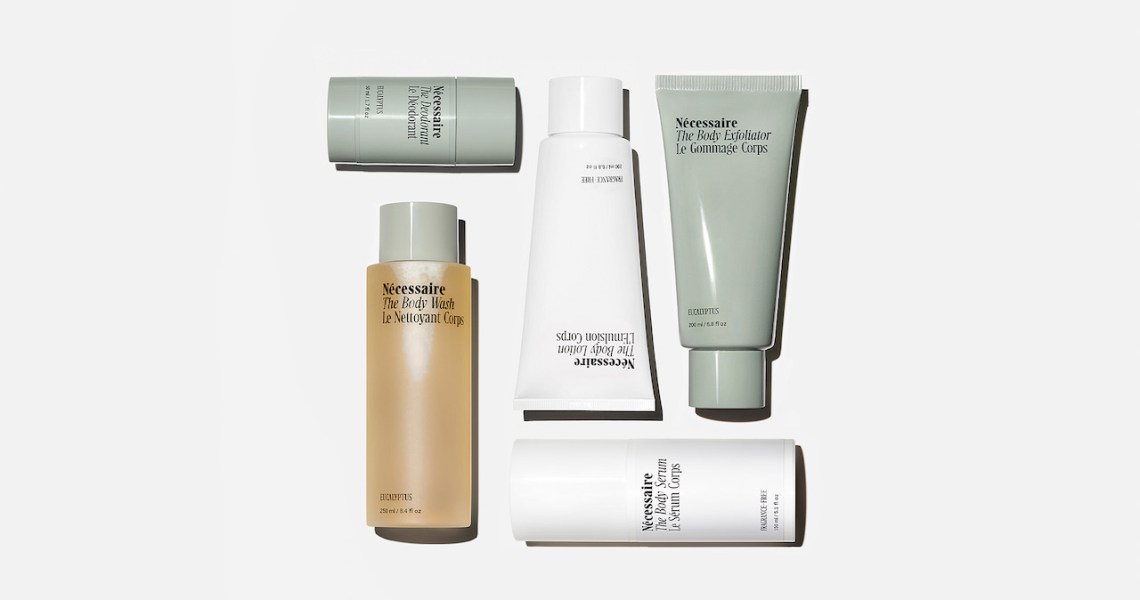Self-care is selling, and clean beauty brands are adjusting their marketing accordingly.
After shifting their marketing focus to the efficacy of their products to compete with heritage beauty brands, clean beauty companies are now expanding their narratives and going back to their original focus on self-care and wellness. The clean category was bound to come full circle, but the coronavirus pandemic has accelerated this shift, as self-care and wellness have become a main opportunities for beauty brands.
“Clean is the new normal; consumers are no longer clicking [to find out] what clean means,” said Randi Christiansen, Nécessaire co-founder and CEO. “With [clean education] no longer the narrative, that consumer is going to look to brands and ask, ‘Why am I choosing this brand over another?’”
Digitally-native Nécessaire expanded its distribution to Sephora.com on Monday, and will enter into Sephora stores by early fall. The brand, which sells body care and sexual wellness products through Violet Grey and Nordstrom, has seen increased engagement around its wellness-focused social media posts and sales of self-care products. Stay-at-home orders have motivated people to make a variety of improvements while at home; at-home items such as home fragrance, candles, and loungewear have seen spikes in sales.
“Brands have to step it up,” said Christiansen. “They have to step up their storytelling, their imagery and change the dialogue it is asking its influencers to have. It has to be meaningful, and it cannot just be a product that says it will reduce wrinkles by X percentage. It’s not enough.”
Nécessaire has always run #selfcaresunday Instagram posts featuring inspirational quotes. But since March 15, it has added other pillars to its weekly self-care-focused posts to speak to the larger beauty conversation it wants to have with consumers. They include self-care tips, “me-time” quizzes and either five wellness products from other bands or wellness activities that Nécessaire suggests. Overall, the company’s social media engagement, measured by comments and likes, has increased by 200% since March 15. Nécessaire is planning to overhaul its omnichannel editorial approach, in order to include email, YouTube and additional Instagram and Facebook features.
The current consumer desire for self-care products has impacted the company’s sales and advertising. Sales of the brand’s eucalyptus-scented body wash has increased by 25% since March 15, compared to the 11 weeks prior to coronavirus. Since March 15, Nécessaire has run paid ads focused on both product performance and self-care, rather than performance alone; the self-care ads are driving 20% more sales comparatively.
For its part, 9-year-old Herbivore Botanicals started off as a brand focused on self-care bath and body products, but has focused its marketing efforts on results-driven skin care over the past three years, said Alex Kummerow, Herbivore Botanicals co-founder. In light of the stresses of coronavirus, Herbivore is now going back to its bath-and-body and self-care roots. The brand added hand sanitizer as a permanent product in May and is considering launching ingestible products.
For the first time, Herbivore is investing in social media advertising through Facebook and Instagram this year, said Kummerow. The brand was self-funded until 2019, when it raised a $15 million series A in Aug. 2019. Kummerow said the brand’s e-commerce sales have grown 500-600% since March. And while skin-care sales still outperform that of bath-and-body products, the latter have seen a 50% boost since March. The brand is now making bath and body a bigger focus on social media. The brand creates editorial and creative content in-house and has now doubled the output due to the paid advertising. The creative team is expected to grow from four to eight people by the end of the year.
“Now that consumers trust us as a brand, and they trust us with both skin care and bath and body, it opens up [the conversations we can have],” said Kummerow.




